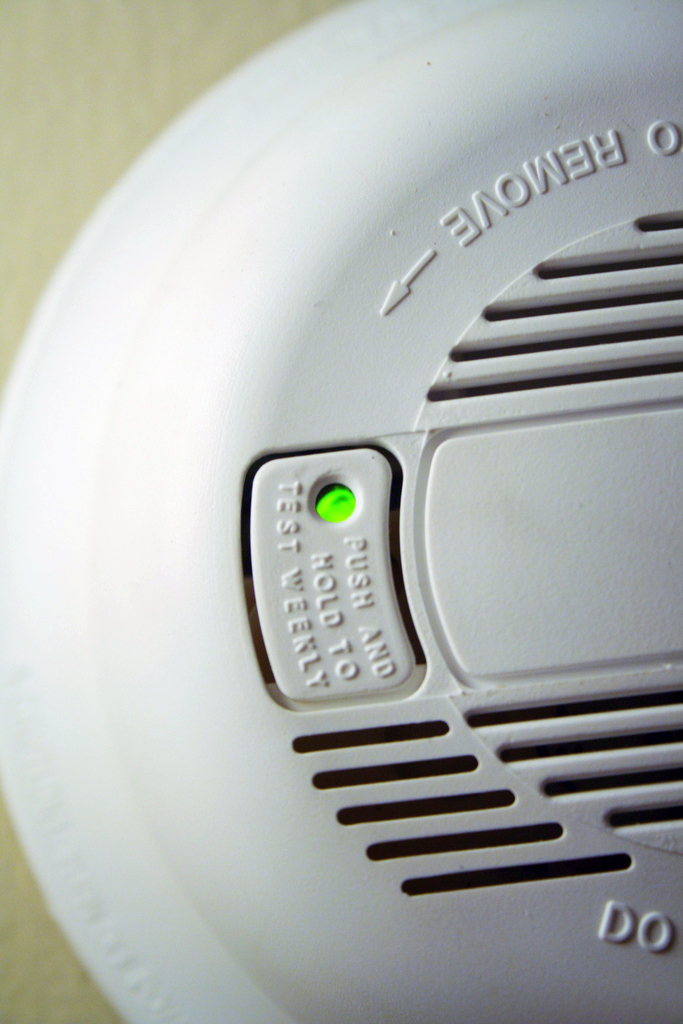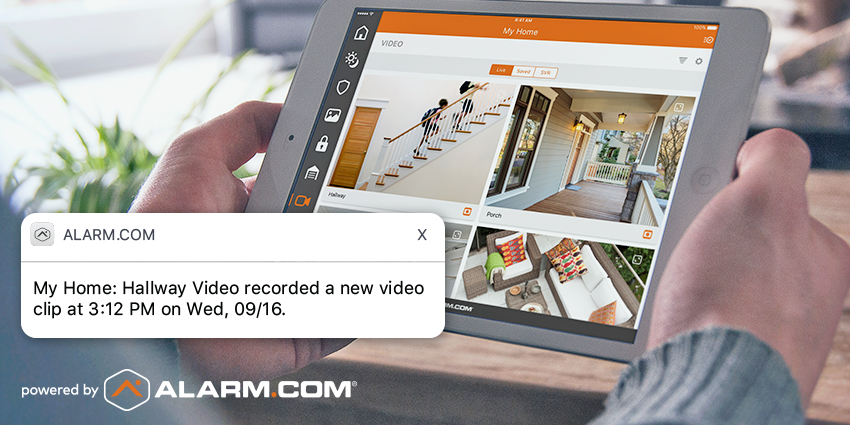Over the past several years, we have had more and more renters as customers, rather than homeowners. Of course, this industry trend reflects overall living trends. This study conducted last year by the Pew Research Center sheds some light on the subject. According to the report, 36.6% of households rented in 2016, rather than owning a home. The statistics of young adults skew even further towards renters. Two thirds (67%) of heads of households under the age of 35 rented their homes. Given these facts, our customers’ need for rental home and apartment security should come as no surprise.
Unfortunately for renters, many large security companies only install alarms for homeowners. This makes it difficult for a large number of people to properly watch over their loved ones and their most valuable possessions. In this post, we will share some of our most valuable advice to ensure proper security for those who rent their homes rather than owning. We’ll begin by sharing a couple of security system-related tips. From there, we’ll look at some additional measures that we especially recommend for renters.
Utilize Wireless Security Equipment
As we mentioned before, larger security companies often do not install alarms for renters. The wiring and installation required of traditional alarm systems scare away many landlords. Therefore, many security companies also stay away. Fortunately for those in the market for rental or apartment security, we offer completely wireless alarms. These systems do not require altering the property where we install them. In fact, we can install our preferred security system panel, the QOLSYS IQ Panel 2, without running any wires at all!

The QOLSYS IQ Panel 2, complete with wireless motion detectors and door contacts, makes a great option for renters seeking home security.
In addition to wireless security contacts, our alarms also offer wireless monitoring options. Until fairly recently, a monitored security system required a hardwired connection to a phone line. However, by installing a cell dialer, now we can monitor your security system through a cell network rather than a hardwired line. Many rental properties — especially apartment complexes — are not wired for phone lines. That makes the ability to have a monitored security system without a hardwired phone line all the more important for renters.
In addition, an interactive cellular dialer, such as ours powered by Alarm.com, can add even more features to your security system. An Alarm.com dialer acts as a smart home hub, allowing you to control lights, thermostats, and other devices with your smartphone. You will also have the ability to turn the security system itself on and off with a smartphone and receive an immediate alert for events such as alarm activation, low sensor batteries or any other issue. We always recommend interactive cellular monitoring thanks to its simplicity, convenience, and extra security.
Find a Company That Won’t Lock You Into a Long-Term Monitoring Contract
In our post on Important Questions to Ask Security System Providers, we discussed the security industry’s practice of locking customers into long-term monitoring contracts. Many landlords frown upon alarm installations on their properties for exactly this reason. After all, a tenant moving out can put the landlord on the hook for the remaining contract term. At Northeast Security Solutions, we monitor out customers’ alarm systems month to month. Customers can cancel at any time, and we do not require owners of rental properties to sign a monitoring contract. If you are a renter, make sure to choose a security provider that abides by this policy.

Make sure to test your smoke alarms when you move in, and continue to test them at least monthly after that. Photo by Alachua County used under the CC by 2.0 license.
Check and Test All Smoke Detection Devices
In our post regarding Residential Smoke Detector Requirements in Massachusetts, we discussed the types of events that trigger an update of smoke alarm equipment. Selling a home always requires an inspector to sign off on the home’s smoke detection. However, a rental property changing tenants does not always receive this treatment. Therefore, renters should always check and test smoke alarms upon moving in to their new home. Smoke alarms generally have a “test” button. Hitting this ensures that the sounder works and the alarm is in working order. To actually test whether the device will detect smoke, however, consider holding a burnt-out match up to the alarm. This ensures that the alarm’s smoke detection works, in addition to the sounder.
In addition, check up on your smoke alarm’s date of manufacture. You can find this date by pulling the detector down from the wall or ceiling and turning it over. The back of the detector should have a sticker with a date of manufacture. This graphic from the U.S. Fire Administration provides a helpful diagram. You should replace any smoke alarm older than 10 years old immediately.
Re-Key Exterior Doors
We discussed this as a priority in our post on Improving Security for New Homeowners. This need only intensifies when it comes to rental home and apartment security. Rental properties tend to change hands frequently. However, landlords and rental offices have their locks re-keyed very infrequently. This makes it quite likely that several people have or have had a key to your home. As long as you provide a copy of your new key, you can likely re-key your exterior doors. Doing so ensures that any previous habitant of your home (and any friends or family members they may have given keys to) cannot come back and enter your home uninvited. This is a very practical and inexpensive rental home and apartment security tip that we highly recommend.
Take Measures to Monitor Your Valuables
Renters, even more than homeowners, must often let others in their yards and homes. This occurs in rental properties such as condos or homes within larger living communities. It also happens in apartment complexes. Homeowners can schedule contractors to work on their homes. Renters, however, must often allow workers into their homes at the mercy of landlords or rental associations’ schedules. Whether installing a seasonal air conditioner or performing maintenance such as fixing a leaky pipe, contractors must often enter renters’ homes on demand to complete their work. For this reason, we recommend taking a couple steps to look after your valuables.

Adding cameras, such as this one by Alarm.com, can help you watch your home by sending you video clips any time they detect motion.
Lock up Your Belongings with a Safe
Consider using a safe to keep anything of specific importance locked up and out of sight. Cash, jewelry, and electronics all make for easy and tempting burglary targets. Purchasing a safe to store these products can greatly reduce the risk of losing your valuables. When considering the type of safe you may want, also keep our Ten Best Practices for Safes in mind.
Keep an Eye on Your Home with Cameras
In addition, installing cameras can help you even if somebody does take your valuables. A surveillance system will allow you to monitor your home through a web browser, smartphone, or tablet at all times. If you have an interactive cell dialer, your cameras can even alert you when someone enters your home. Alarm.com cameras, for example, send motion-activated video clips to your phone immediately. Your Alarm.com account will store a month’s worth of these videos on your account for you. If anything happens inside your home, you can store the clip(s) on a thumb drive or as a computer file. These cameras do not require any installation hardware or wiring. Simply plug them in and place them in locations you want to monitor.
Putting it All Together
We hope that this post has given you some ideas to secure your home if you rent. You may wish to bolster your rental home, condo, or apartment security with a monitored alarm system. Or perhaps you want to lock up your valuables with a safe, or behind doors with new or re-keyed locks. If you have any questions about the ideas in this post, please do not hesitate to contact us. We can provide a free site survey of your home to address any security concerns you may have. While on site, we can also share any security vulnerabilities that we find and make our own recommendations. Together, we can come up with a security plan that keeps you, your loved ones, and your most valuable possessions safe and secure.
Cover Photo Credit: CC BY 2.0 Image courtesy of Cincy Project on Flickr.
